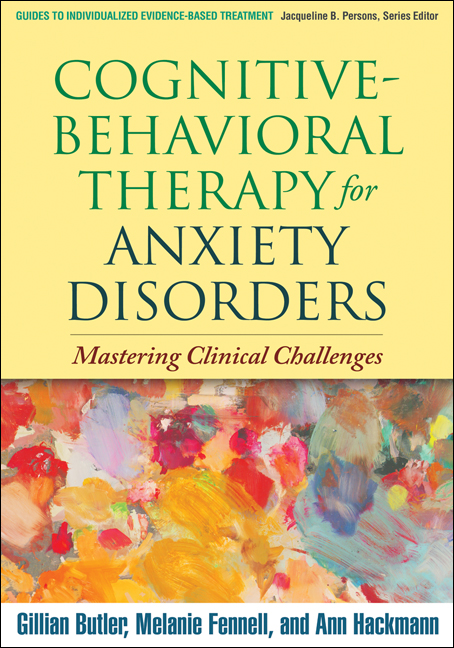Take control of your life with counselling for anxiety support today
Take control of your life with counselling for anxiety support today
Blog Article
Checking Out Different Strategies in Counselling for Stress And Anxiety Disorder for Enduring Modification
When tackling anxiety conditions, it's important to explore a range of counseling methods. Each approach provides unique insights and devices to help you manage your signs properly. You might discover that incorporating methods can yield the most effective outcomes. However, comprehending the nuances of these techniques is vital to fostering long-term change. Suppose the appropriate mix could release a new level of psychological wellness for you?
Recognizing Stress And Anxiety Problems: A Quick Introduction
Anxiety conditions, which affect countless people worldwide, can greatly affect day-to-day live. You may experience overwhelming sensations of concern or worry that seem unmanageable. These feelings can lead to physical symptoms like an auto racing heart, sweating, or also dizziness. Usual kinds of anxiousness conditions include generalised stress and anxiety disorder, panic problem, and social anxiousness problem. Each has special indicators, but they all share a propensity to disrupt your routine and relationships.Understanding the source of your anxiousness is vital. It might originate from genetics, brain chemistry, or life experiences. Identifying your triggers can help you manage your actions better. It is necessary to bear in mind that you're not alone in this battle. Many people encounter comparable obstacles, and seeking help is a solid step towards sensation better. By learning more about anxiousness disorders, you're already on the course to understanding and handling your problem much more properly.
Cognitive-Behavioral Treatment: Testing Negative Thought Patterns
In Cognitive-Behavioral Therapy, you'll start by identifying the unfavorable idea triggers that add to your stress and anxiety. When you identify these thoughts, you'll service changing them with more favorable choices. Together, you'll develop efficient coping approaches to help manage your anxiety in everyday circumstances.
Determining Negative Idea Triggers

When you encounter moments of distress, recognizing the certain triggers behind your unfavorable ideas can be crucial in managing anxiety. Start by taking note of situations that prompt sensations of fear or anxiety. Is it a jampacked space, a forthcoming deadline, or a discussion with particular individuals? Write down these circumstances in a journal. This will help you recognize patterns in your thinking. Also, notice physical feelings that accompany your negative ideas, like an auto racing heart or tightness in your upper body. By identifying these triggers, you acquire insight right into what's fueling your stress and anxiety. Understanding these links is the first action in testing those ideas and ultimately restoring control over your emotional reactions.
Replacing Thoughts With Positives
Testing negative thought patterns is an essential action in changing your attitude and reducing anxiety. You might typically find yourself entraped in cycles of self-doubt or disastrous reasoning. As opposed to letting these ideas determine your feelings, method changing them with practical alternatives or positive affirmations. As an example, when you think, "I can't manage this," move it to, "I can manage difficulties one action each time." This simple modification can considerably influence your emotion. Routinely determining and responding to these adverse ideas aids develop a healthier interior discussion. Bear in mind, it requires time and effort, but constantly exercising this method can cause long-term change, equipping you to deal with stress and anxiety with renewed confidence and resilience.
Building Coping Strategies Together
Replacing adverse ideas is just the start of taking care of anxiousness properly. To create lasting change, you need to build coping techniques that empower you. Cognitive-Behavioral Therapy (CBT) helps you recognize and challenge those purposeless idea patterns. Together, you and your therapist can discover exactly how these thoughts influence your feelings and behaviors.Start by developing useful techniques, like journaling or mindfulness workouts, that enable you to confront anxiousness head-on. When you encounter your fears progressively, you'll find out to respond in different ways.

Mindfulness and Acceptance-Based Approaches: Growing Present-Moment Awareness
As you browse the intricacies of stress and anxiety, incorporating mindfulness and acceptance-based approaches can substantially boost your ability to cultivate present-moment understanding. By concentrating on the here and now, you'll find that you can observe your ideas and feelings without judgment (Counseling services for anxiety). This technique aids you acknowledge your stress and anxiety without really feeling overwhelmed by it.Engaging in mindfulness exercises, such as deep breathing, body scans, or led meditations, allows you to ground on your own in your present experience. Acceptance-based methods urge you to embrace your feelings instead than combat versus them. They lose their power over you.Incorporating these practices right into your daily routine can transform exactly how you react to stress and anxiety when you approve your feelings. You'll create strength and learn to browse stressful situations with greater simplicity. Ultimately, cultivating present-moment awareness lays the foundation for long lasting change, encouraging you to lead a more fulfilling life
Exposure Treatment: Challenging Anxieties Gradually
Direct exposure therapy aids you confront your anxieties in a gradual method, making it much less overwhelming. You'll find out techniques to encounter anxiety-provoking circumstances detailed, while also constructing coping strategies to manage your responses. This technique equips you to take control and reduce anxiousness with time.
Steady Direct Exposure Techniques

When dealing with anxiety, slowly challenging your concerns can be a powerful way to reclaim control. This method, understood as progressive direct exposure, involves gradually subjecting on your own to the circumstances or things that activate your anxiety. Begin with less daunting situations and gradually function your method up to more difficult ones. If you're terrified of public speaking, you may begin by talking in front of a mirror, after that advance to sharing ideas with a buddy, and eventually resolve a little group. Each step aids desensitize you to the fear, building your self-confidence over time. Remember, it's important to speed on your own and commemorate small success as you move through this procedure, enhancing your ability to take care of anxiety successfully.
Building Coping Techniques
Structure effective coping techniques is important for managing stress and anxiety, especially as you face your worries gradually - Counseling services for anxiety. One effective method is direct exposure treatment, where you begin by encountering your worries in a controlled fashion. Start with less frightening scenarios and gradually work your method as much as more difficult situations. This gradual direct exposure helps desensitize you to stress and anxiety sets off, making them less overwhelming.Incorporate leisure methods, such as deep breathing or mindfulness, to relax your mind throughout direct exposure. Track your progress, celebrating small triumphes along the method to increase your self-confidence. Bear in mind, it's fine to take your time; the objective isn't perfection but constant improvement. By developing these approaches, you'll empower on your own to navigate anxiety and welcome life much more totally
Psychodynamic Therapy: Uncovering Origin of Anxiety
Psychodynamic therapy explores the unconscious mind, exposing the root causes of your anxiousness. By analyzing your thoughts, feelings, and past experiences, this strategy assists you reveal underlying problems and unsettled concerns that might contribute to your present anxiety. You'll deal with a specialist to explore childhood years experiences, relationships, and psychological patterns that form your responses today.As you obtain understanding right into these much deeper layers of your subconscious, you'll start to identify exactly how previous occasions affect your present actions. This understanding can lead to catharsis, permitting you to refine feelings you could have suppressed.Through the restorative connection, you can likewise identify defense reaction that may have created over time, using a clearer course to transform. Inevitably, psychodynamic therapy furnishes you with the devices to resolve your stress and anxiety at its core, advertising long-term change in your emotional well-being.
Integrative and Alternative Techniques: Incorporating Techniques for Greater Effectiveness
Incorporating various therapeutic methods can enhance your journey toward managing stress and anxiety a lot more properly. By combining elements from cognitive-behavioral treatment, mindfulness methods, and holistic methods, you can create an individualized approach that resolves your distinct needs. As an example, you may utilize cognitive-behavioral techniques to challenge negative thought patterns while incorporating mindfulness exercises to ground on your own in today moment.Additionally, discovering holistic practices such as yoga exercise or meditation can advertise relaxation and reduce anxiety signs. This mix enables you to establish greater self-awareness and resilience.Experimenting with these diverse techniques can assist you uncover what resonates most with you. Bear in mind, it's regarding finding a synergy that works, instead of sticking to a single approach. This integrative approach not only supplies instant alleviation yet also promotes long-lasting abilities for managing anxiousness, equipping you to redeem control over your life.
The Role of Assistance Solutions: Structure Resilience With Connection
While it might appear that taking care of anxiety is a singular journey, having a solid support group can play a vital duty in your resilience. Bordering yourself with compassionate friends, household, or support teams develops a safe room where you can openly share your experiences and feelings. When you connect with others, you remind yourself that you're not alone in this struggle.These connections use motivation and can supply useful coping techniques that have helped others. It's also a chance to get point of view; friends can aid you see scenarios differently, minimizing feelings of isolation.Moreover, emotional support fosters a feeling of belonging, which can considerably relieve anxiousness symptoms. By leaning on your support group, you can develop resilience and deal with challenges better. Keep in mind, connecting for assistance suggests toughness, and it can make all the distinction in your trip towards taking care of stress and anxiety.
Regularly Asked Questions
What Are the Typical Signs And Symptoms of Anxiousness Conditions?
You may experience uneasyness, exhaustion, problem concentrating, impatience, muscle mass stress, and sleep disruptions. Physical symptoms can include fast heart beat, sweating, and trembling. Acknowledging these signs early can aid you look for appropriate support and therapy.
How Much Time Does Treatment Generally Last for Anxiousness Problems?
Therapy for stress and anxiety disorders normally lasts anywhere from a few weeks to a number of months. It really depends upon your individual requirements, progress, and the methods your specialist utilizes to aid you manage your anxiousness effectively.
Can Drug Be Made Use Of Together With Therapy for Anxiety?
Yes, medication can certainly be used along with treatment for anxiousness. Incorporating both strategies often boosts therapy performance, helping you handle signs while discovering underlying problems through therapy (Counseling services for anxiety). Always consult your doctor for customized guidance
Exist Self-Help Approaches for Handling Anxiousness?
Yes, there are a number of self-help strategies for taking care of stress and anxiety. You can practice mindfulness, take part in normal exercise, keep a balanced diet plan, establish a routine, and use deep breathing strategies to help in reducing stress and anxiety signs and symptoms successfully.
Just how Do I Know if I Required Specialist Help for Anxiousness?

Report this page